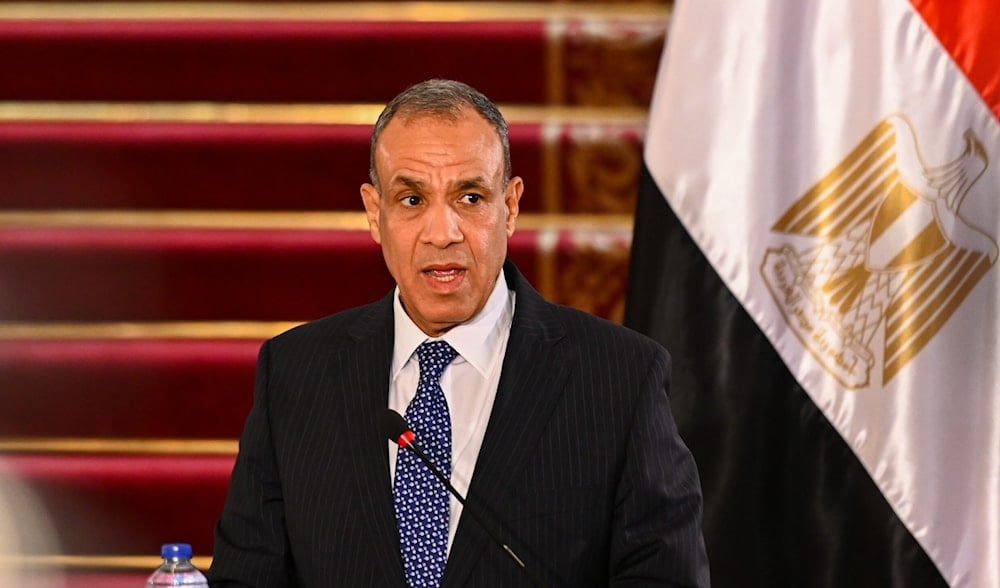Egypt rejects Ethiopian involvement in Red Sea governance
Egyptian Foreign Minister Badr Abdel Aaty affirms that Red Sea governance is the exclusive right of coastal states, rejecting any role for Ethiopia or landlocked countries.
-

Egypt's Foreign Minister Badr Abdel Aaty holds a press conference with the European Union's foreign policy chief at the foreign ministry in Tahrir Palace, on September 10, 2024, in Cairo, Egypt. (AFP/Getty Images)
Egyptian Foreign Minister Badr Abdel Aaty asserted on Friday that the governance of the Red Sea is a matter exclusive to coastal states, rejecting any involvement from non-littoral nations. In a clear reference to Ethiopia, Abdel-Aty emphasized that countries without direct access to the Red Sea should have no say in its governance mechanisms.
"The governance of the Red Sea is a matter that concerns only the countries bordering the Red Sea, and no country that does not border the Red Sea has the right to interfere or participate in its governance mechanisms," he stated in a press release.
Abdel Aaty directly addressed Ethiopia’s recent moves to position itself in regional maritime matters, stressing that "no non-shoreline country has any say in the governance of the Red Sea," adding: "I am talking about landlocked countries in Africa, specifically Ethiopia," highlighting Egypt’s firm stance against any such external involvement.
The statement reflects Cairo’s deep concern over Ethiopia’s geopolitical ambitions in the region, particularly after Addis Ababa repeatedly signaled interest in securing access to the Red Sea, a critical corridor to regional trade and security.
The Egyptian foreign minister further revealed that Egypt and Saudi Arabia are currently engaged in consultations regarding the future of Red Sea governance, describing the two nations as "key coastal states" with a "fundamental responsibility" in ensuring the security and stability of this vital maritime corridor.
Abdel Aaty affirmed, "Egypt and Saudi Arabia have a fundamental responsibility in managing this vital sea corridor and ensuring its security and stability."
The remarks come amid increasing regional competition and security concerns over Red Sea access, underscoring Egypt’s view that only coastal states have the legal and strategic legitimacy to determine the region’s maritime governance framework.
Here's what you should know
Egypt’s rejection of Ethiopian involvement in Red Sea governance is rooted in a broader, longstanding rivalry sharpened by the Grand Ethiopian Renaissance Dam (GERD) dispute.
The GERD, constructed by Ethiopia on the Blue Nile, has been a flashpoint in Egyptian-Ethiopian relations since its announcement in 2011. Egypt fears that the dam will dramatically reduce its share of Nile waters, threatening agriculture, water supply, and national security. Negotiations involving Egypt, Sudan, and Ethiopia have repeatedly stalled, with Cairo viewing Addis Ababa’s assertiveness as a challenge to its historic rights and regional standing.
Ethiopia’s recent moves to secure access to the Red Sea stem from its landlocked status since Eritrea’s independence in 1993, which cut off direct access to maritime trade routes. Addis Ababa has openly discussed the strategic necessity of gaining maritime outlets, whether through diplomatic deals, port investment, or hints at forceful means, such as its failed bid to reach a deal with Somaliland, strongly rebuked by Somalia.
These ambitions are viewed with suspicion by Egypt, which sees them as part of a larger pattern of regional assertiveness and competition, echoed by Ethiopia’s posture in the GERD negotiations.
The latest diplomatic spar thus reflects how Nile Basin tensions over GERD reverberate into Red Sea politics, intertwining hydropolitics with strategic maritime governance.

 3 Min Read
3 Min Read










